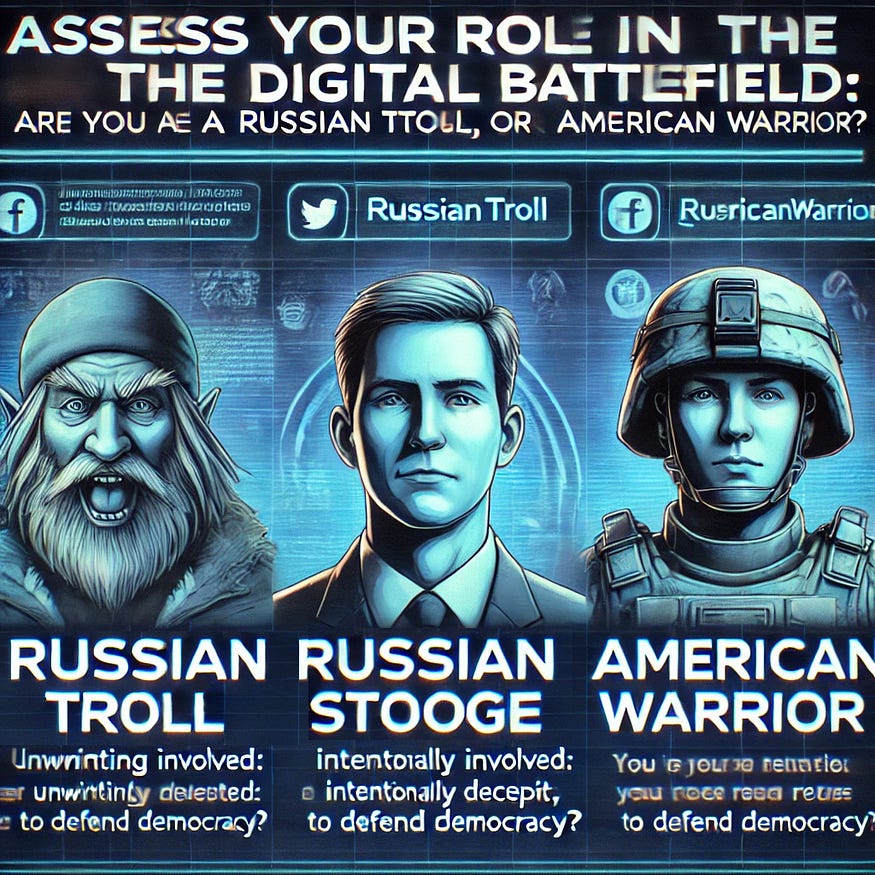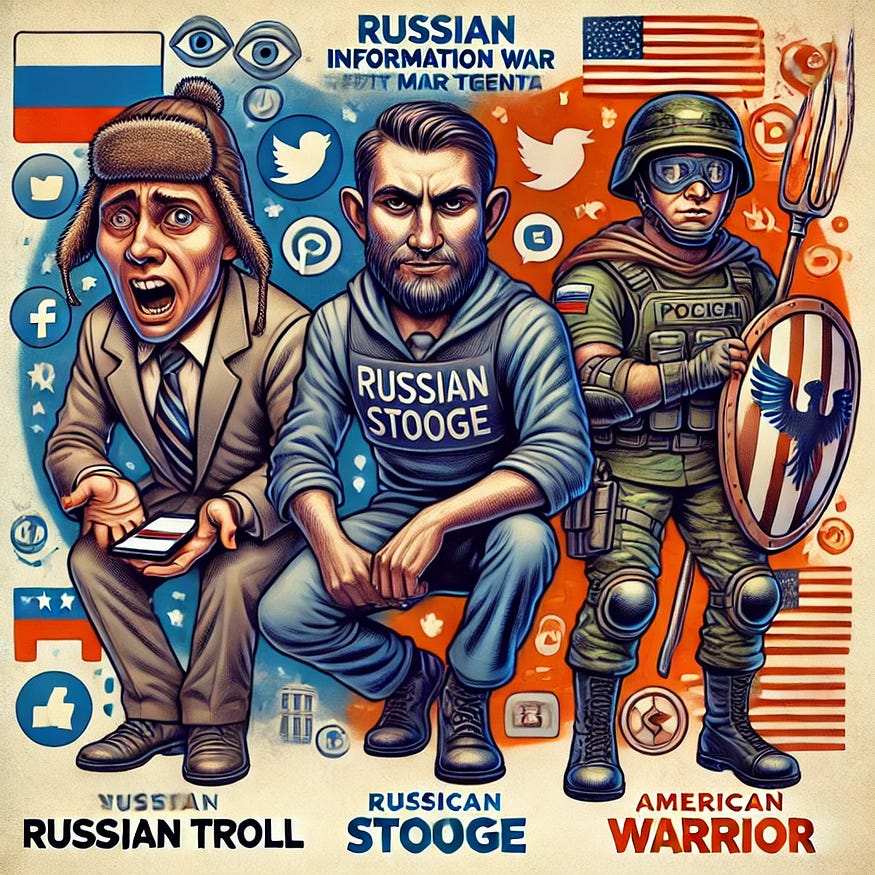Information Warfare Litmus Test
Information Warfare Litmus Test

Definitions:
Russian Troll: Someone who unwittingly helps the Russian Information War Agenda.
Russian Stooge: Someone who wittingly helps the Russian Information War Agenda.
American Warrior: Someone who is aware of the Information War and is fighting to protect democracy.
1. Understanding and Awareness of the Information War
Q1: Are you aware of the concept of information warfare and its impact on democratic societies?
A: Yes, and I actively follow developments and strategies related to it.
B: I’ve heard of it, but I’m not deeply familiar with the specifics.
C: No, I don’t believe information warfare is a significant issue.
Q2: How do you primarily receive news and information?
A: From a variety of credible sources, including mainstream media, independent journalism, and verified online platforms.
B: Mainly from social media and a few selected news websites.
C: Exclusively from alternative news sites and social media influencers.
2. Behavior and Engagement with Content
Q3: When you encounter a sensational news story, what is your typical response?
A: I verify the information using multiple reputable sources before sharing or forming an opinion.
B: I sometimes check other sources, but often share it if it aligns with my views.
C: I immediately share it if it resonates with my beliefs or seems important.
Q4: How do you react to information that contradicts your existing beliefs?
A: I consider the new information and research further to understand different perspectives.
B: I feel skeptical but might look into it if it seems significant.
C: I dismiss it as likely fake or biased.
3. Perception and Response to Disinformation
Q5: Do you believe disinformation campaigns are a threat to national security?
A: Yes, they are a serious threat that undermines trust in democratic institutions.
B: They might be a concern, but I think the threat is often exaggerated.
C: No, I believe the idea of disinformation campaigns is overblown and used to censor alternative viewpoints.
Q6: Have you ever shared a news story that was later proven to be false or misleading?
A: Yes, but I issued a correction and apologized once I found out.
B: Yes, but I didn’t see the harm in sharing my perspective.
C: No, or if I did, I still believe the story was accurate.
4. Actions and Contributions
Q7: Do you actively participate in discussions to debunk misinformation and educate others?
A: Yes, I engage in discussions and share factual information to counteract false narratives.
B: Occasionally, if the topic interests me or if I feel strongly about it.
C: No, I prefer to share my views and don’t engage in debunking efforts.
Q8: How important do you think it is to maintain a critical stance towards all information, regardless of the source?
A: Extremely important; critical thinking is essential in the information age.
B: Somewhat important; I trust certain sources more than others.
C: Not very important; I trust the sources that align with my beliefs.
Scoring and Interpretation
Mostly A’s: American Warrior
You are well-informed about the information war and actively work to protect democracy by engaging critically with information and educating others.
Mostly B’s: Russian Troll
You might unwittingly contribute to the spread of misinformation due to a lack of rigorous fact-checking and critical engagement with content.
Mostly C’s: Russian Stooge
Your actions suggest a willingness to spread information that supports specific agendas, potentially undermining democratic processes, whether intentionally or not.

Conclusion
This litmus test aims to help individuals reflect on their information consumption and sharing behaviors. By understanding where you stand, you can take steps to become more critical and informed, contributing positively to the information landscape and defending democratic values.

